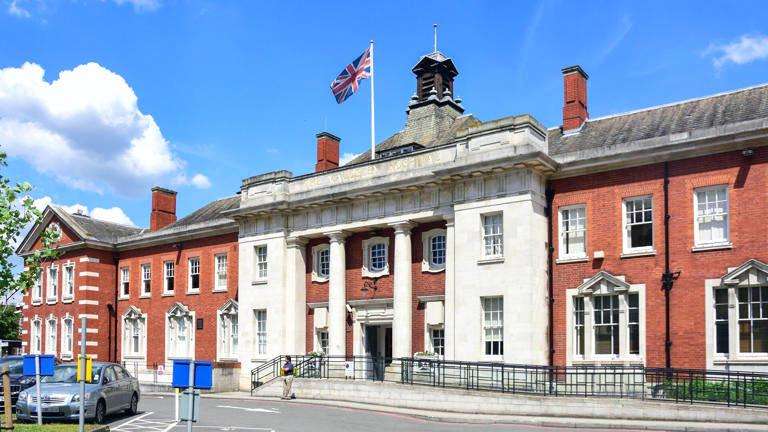New research and firsthand accounts are shedding light on the indispensable role migrant workers play in sustaining the UK economy, frequently occupying positions that British-born individuals are less inclined to undertake. Data compiled by The Telegraph has identified key British occupations where overseas labor forms a significant portion of the workforce, revealing a fundamental reliance on international talent rather than a simple preference, Daily Dazzling Dawn understand.
Care work emerges as the profession with the highest concentration of migrant employees, with over 111,000 work visas granted between 2021 and 2024. Nationals from Nigeria, Zimbabwe, Afghanistan, Bangladesh, and Kenya are particularly prominent in this sector. The demanding nature and comparatively lower pay associated with these roles may contribute to a lower uptake among the domestic labor pool. As evidenced by the experiences of care workers who have migrated to the UK, many are driven by the pursuit of opportunities and a desire to contribute to a sector facing critical staffing shortages.
Following closely is nursing, another sector heavily reliant on migrant workers. Over 33,000 visas were issued to Indian nurses alone during the same period, underscoring a long-established collaborative relationship between the UK and India in addressing healthcare staffing gaps. Pearl Cruz, a nurse from Mumbai now working in Birmingham, exemplifies this trend, highlighting the historical recognition of nursing as a respected profession in India and her decision to migrate to fill a crucial need within the NHS.
The experience of Harry Reeves, an Australian paramedic working in the UK, further illustrates how demand within the UK can attract skilled professionals from overseas. He notes that the higher demand for paramedics in the UK, compared to Australia, offers enhanced professional structures and conditions, incentivizing skilled workers to fill essential roles within ambulance services.
Beyond these critical frontline roles, migrants also make substantial contributions to higher-skilled professions. South Africans are notably present in chartered accountancy, while individuals from Japan and St Kitts and Nevis frequently work in sales and business development. Programmers and software developers from Hong Kong, Hungary, and Croatia are also vital to the UK's thriving technology sector.
The data unequivocally demonstrates that migrant workers are not simply filling any available jobs; they are often the backbone of essential sectors grappling with significant labor shortages, thereby making crucial contributions to the functioning of vital services such as healthcare and social care. The reasons behind this trend are complex, encompassing domestic labor shortages, the specific demands and compensation levels of certain roles, and the specialized skills and qualifications that international workers bring to the UK.
If anti-immigration and anti-Muslim sentiment were to gain significant traction and influence UK policy, the ramifications could be profound and detrimental. A large-scale departure or prevention of entry of migrant workers could cripple essential services like healthcare, social care, hospitality, and agriculture, all of which depend heavily on overseas labor. This would inevitably lead to severe staff shortages, potential closures of vital facilities, and a marked deterioration in the quality of essential services.
The already overburdened NHS and social care system would face insurmountable pressure without the contributions of migrant workers, potentially resulting in longer waiting times, diminished access to crucial care, and a systemic breakdown. Furthermore, many sectors rely on migrant labor to bridge critical skills gaps and fuel economic growth. A reduction in immigration could lead to significant labor shortages, stifling productivity and innovation, and potentially triggering economic stagnation or decline.
Beyond the economic impacts, a victory for anti-immigration rhetoric could cultivate a more divided and hostile society, fostering increased discrimination, hate crimes, and a disintegration of community cohesion. This would negatively affect the well-being of all residents, not just immigrant communities. The UK's standing as a diverse and welcoming nation could also be severely compromised, potentially damaging international collaborations, trade relationships, and tourism. Moreover, a decline in immigration would mean a loss of the diverse perspectives, skills, and cultural richness that immigrants bring, leading to a less vibrant and culturally dynamic nation.
British Bangladeshi, British South Asian, British Muslim, British Indian, and British Pakistani immigrants have made, and continue to make, substantial and diverse contributions to the UK across numerous facets of society. Economically, they contribute significantly through their labor, entrepreneurial ventures, and consumer spending. Many own and operate successful businesses, generating employment and driving innovation across various sectors. Within healthcare, individuals from these communities form a critical part of the NHS workforce, serving as doctors, nurses, care workers, and other essential healthcare professionals, providing vital care to the entire nation.
Their contributions extend across public services, including education, law enforcement, and local government, where their skills and dedication serve the wider community. Culturally, they have enriched the UK's landscape through their contributions to music, literature, art, fashion, and cuisine, adding to the diversity and vibrancy of British society. Many have also excelled in science, technology, engineering, and mathematics (STEM) fields and in academia, contributing to research, innovation, and the education of future generations. Socially, they have strengthened the fabric of the UK by fostering intercultural understanding, promoting community cohesion, and contributing to the rich tapestry of British identity. Their diverse perspectives and experiences enrich public discourse and contribute to a more inclusive society.
In conclusion, portraying migrants as simply taking unwanted jobs is a gross oversimplification. These individuals often fill crucial labor deficits in essential sectors, providing indispensable services and significantly contributing to the UK's economic and social well-being. A surge in anti-immigration sentiment and policies would carry severe negative consequences, while recognizing and valuing the multifaceted contributions of immigrant communities is essential for the UK's future prosperity and social harmony.








.svg)



